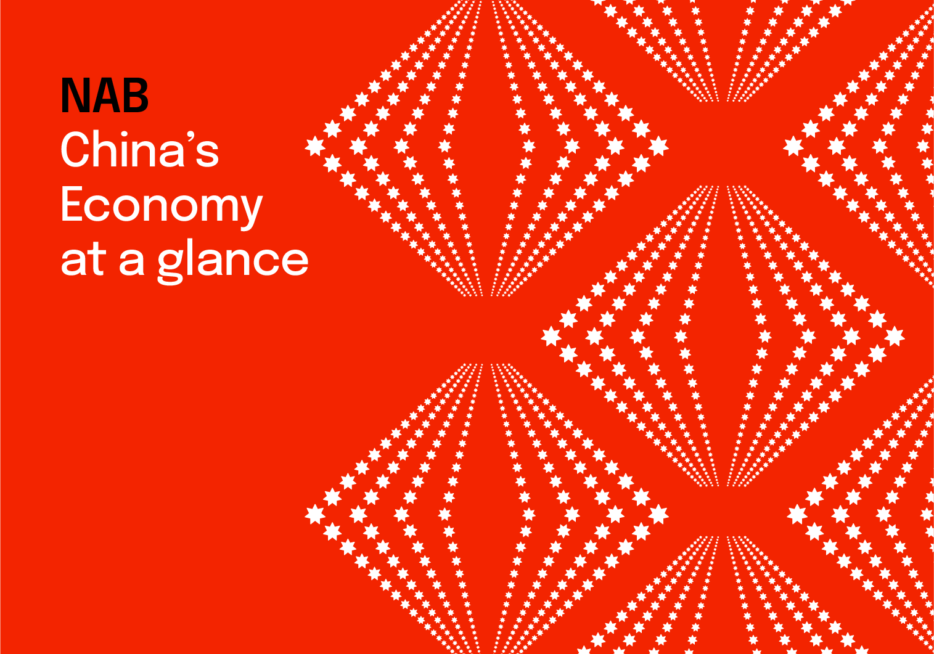China’s growth beat expectations in Q1, but big question marks around its sustainability

Insight
From one product line on Australian shelves many years ago, Stahmann Farms now has an abundant 40 nut products in some of the world’s biggest supermarkets chains as well as delivering branded products into its own online store in China.
Already one of Australia’s largest nut exporters, Stahmann Farms’ recent alliance with major Southern Hemisphere producers to service clients across the USA, Asia and Europe means the business is now one of the world’s most influential global nut suppliers.
You only have to walk through the rows of majestic trees at Stahmann’s orchards, or through the massive cold rooms filled with perfectly stored nuts at their Toowoomba processing factory, to appreciate the richness of this diverse nut growing and processing business.
A worldwide dietary trend towards the healthy protein and nutrient rich produce, coupled with an obsession with quality assurance and business savvy, are driving the success of Stahmann’s exports.
Having started out with just one raw pecan product line, they now market more than 40 different nut products and are classified as a world-class multi-branded nut mecca.
Stahmann today is Australia’s largest pecan grower, with more than 100,000 trees in their Moree orchards situated some 35 kilometres east of Moree. The area’s alluvial soils are some of the deepest and richest in the country. Good rainfall, supplemented by water drawn from the Gwydir River, provide near perfect growing conditions to produce some of the most sought-after pecans in the world.
At harvest time, mobile shakers move through the orchards, creating a shower of produce collected from the ground by mechanical harvesters. Nuts are cleaned and dried on the farm before being shipped to the Toowoomba plant for shelling and quality grading, so they’re ready for packaging to global markets.
“We’ve been a bulk exporter, however with our retail packaging accreditation and capacity we now provide a consumer-ready product,” explains Matthew Durack, Director at Stahmann. “The business now has unlimited growth potential but we are volume limited. We are planting trees as fast as we can but they take time to produce, so we source additional supplies from around Australia to meet demand.”
 A business in full blossom
A business in full blossomSo how has the business achieved such success?
Stahmann’s ability to supply the Northern Hemisphere in their off-season, particularly in the pre-Christmas period, has developed into a lucrative market. Consumers in the major exports of Europe, the USA and Asia can buy Stahmann fresh pecans and macadamias all year round.
To meet growing demand, Stahmann has established Australia’s only dedicated Tree Nut Marketing Pool where growers contribute product to a marketing pool and receive the full sales value achieved, less agreed processing and pool management fees. This transparent approach to value creation has seen its trading business double year on year for some years now.
Over the past five years, Stahmann has seen the value in collaborating with growers from around the world through a co-owned entity Green and Gold Speciality Tree Nuts which sources kernel from South Africa, South America and Australia to meet the needs of some of the world’s largest supermarket chains. The Green and Gold group now controls 15 per cent of the global macadamia supply, meeting the massive and growing demands of customers like Costco and Trader Joe’s.
“It’s about becoming more than just an exporter, but a global supplier, setting out to find ways of meeting the customer’s needs, irrespective of where you source from,” explains Durack. “Instead of competing, we thought it would be a better idea to cooperate and collaborate with our Southern Hemisphere counterparts.”
The alliance is paying dividends for Stahmann. The operation has recently been boosted with a new South American company and another Australian operation joining forces with Stahmann, creating an exporting ‘powerhouse’.
Comments Durack: “Our Southern Hemisphere alliance has been fantastic, enabling a better understanding of the global marketplace and placing our product in the right markets.”
Healthy demand from Asia has seen the value of Australia’s nut industry soar towards the $1 billion mark, but it’s their growing hunger specifically for pecans and macadamias that’s benefiting Stahmann.
“The Chinese market is extraordinarily hungry for our product,” comments Durack. “For us, it’s about managing supply to keep up with demand. China can easily absorb our entire production but to ensure sustainable returns we try to limit exposure to any single market to less than 20 per cent of our through-put.”
According to Stahmann, macadamia prices in China have doubled since 2012, but consumers are still demanding the product – and often still in its shell. Also brightening the export outlook are economic factors, says Durack, including “commodity prices, the soft Australian dollar and free trade agreements as positive indicators”.
Naturally, keeping hold of their quality mission during periods of high export growth requires investment in quality assurance systems and training.
“Keeping hold of our mission and values during growth has been about investment in people associated with quality assurance and systems,” says Durack. “Five or six years ago our Quality Assurance department had one person in it. Now we have four full-time employees focused on Quality Assurance and Testing. Scale is important, but without investing, you can’t allow people to specialise.”
The United States is another growth market, where Stahmann’s Southern Hemisphere alliance enables it to service some of the largest clients in the world, specifically the major US supermarkets.
© National Australia Bank Limited. ABN 12 004 044 937 AFSL and Australian Credit Licence 230686.